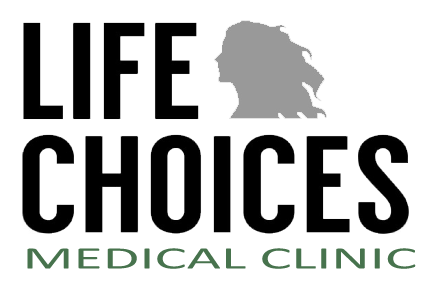Considering Abortion?
Abortion might have been the first thing to come to your mind after you found out you were pregnant. It’s an option many women rush to make because they’re scared, embarrassed, or don’t want anyone to know they’re pregnant. It’s important to remember abortion is a serious medical procedure that comes with a set of risks and side effects that sometimes last a lifetime, so you deserve to carefully consider every option before making your decision.
What Should I Do First?
If you haven’t already, the first thing you should do is confirm your pregnancy with a pregnancy test. It’s the only way to know for sure, no matter how many pregnancy symptoms you’re experiencing.
We offer free pregnancy testing at our clinic, so you can get the answers you need today.
After a positive pregnancy test, your next step should be to get an ultrasound. This will reveal important information about your pregnancy which will determine which option you can choose. An ultrasound answers vital questions about viability, how far along you are, and where your pregnancy is located. The answer to each determines the type of abortion you can choose.
What Are The Different Types of Abortion?
After determining if you are actually pregnant and how far along you are, you have a few different options to choose from if you’re considering an abortion. The information below is a summary of the various procedures; we provide more information if you come for a pregnancy testing or ultrasound appointment.
The Abortion Pill
The abortion pill is a medication abortion that must be prescribed by a doctor at a clinic or hospital. It’s actually two pills that you take sequentially to end and then expel your pregnancy.
The first pill, mifepristone, is taken at the clinic. It causes the lining of your uterus to thin, making it impossible for the fetus to remain implanted; this causes fetal demise.
The second pill, misoprostol, is taken at least 24 hours later, usually at home. This causes your body to have contractions and for the fetus to be expelled. You may experience mild to excessive bleeding, cramping, nausea, and abdominal pain as you are passing the pregnancy.
The abortion pill is only approved to take during the first nine weeks of pregnancy. If your pregnancy is more advanced, you will need to choose a surgical option.
Surgical Abortions
There are a few different surgical abortion procedures available based on how far along you are in the pregnancy. All require a lethal injection to cause fetal demise and the insertion of rods of some kind to expand your cervix. A tube with a suction device will then be inserted to your uterus to suction out the pregnancy. The doctor may also need to use a curette to scrape the inside of your uterus to ensure everything was removed.
Surgical procedures vary depending on how advanced the pregnancy is at the time. You may be put to sleep or remain awake for the procedure, and be given a medication afterward to manage any pain you may feel.
What Are The Abortion Risks?
As with any medical procedure, abortion comes with a variety of risks and side effects it’s important to be aware of before choosing this option.
Physical Risks
These are common risks to know about before making your decision:
- Heavy bleeding
- Damage to the uterus
- Damage to the cervix
- Sepsis
- Needing another surgery to remove parts that were missed the first time
- Infection
- Death
Emotional Risks
In addition to these physical risks, there are emotional risks as well:
- Regret
- Guilt
- Anger
- Anxiety
- Depression
- Suicidal thoughts
- Substance abuse
You deserve the facts before choosing an abortion, and should know that many women struggle with their abortion for the rest of their lives.
If you have questions, would like more information, or want to learn more about your other options, please schedule an appointment with us today. We’re here for you!
